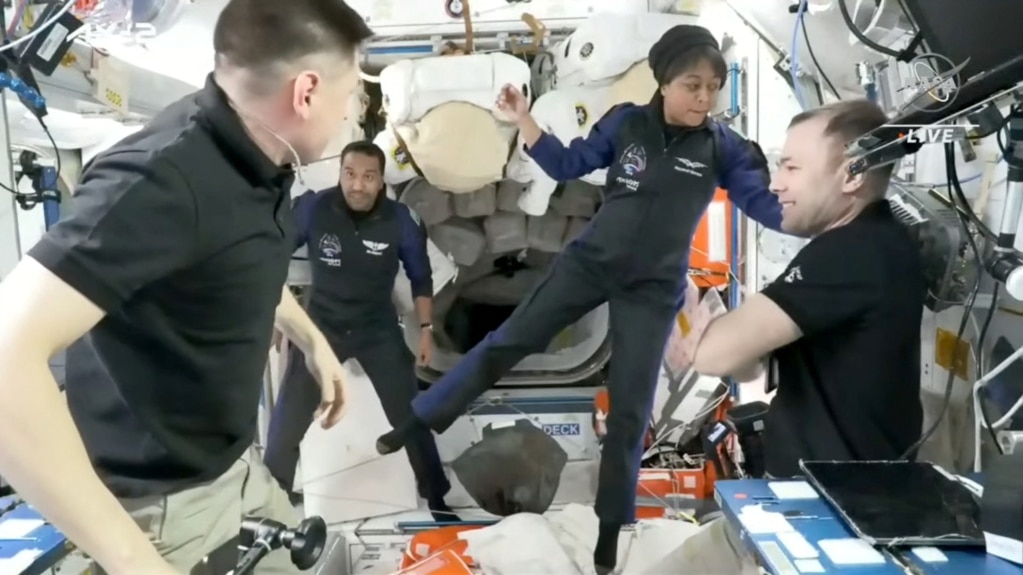Research in the growing field of space medicine has identified many ways in which zero-gravity and other conditions can affect the human body. Now, a new study finds that astronauts are more likely to experience headaches in space than previously known.
The study involved 24 astronauts from the U.S., European and Japanese space agencies. They all traveled aboard the International Space Station for up to 26 weeks. All but two of them reported experiencing headaches in space.
Headaches struck a larger number of astronauts than the scientists had expected. The headaches continued even after the crew had been in space long enough for the body to adjust. The process takes place in the first two weeks in space.
The headaches during the early period often presented similarly to migraines. Those experienced later in space travel presented more like a tension headache, the study found.
Neurologist WPJ van Oosterhout of Zaans Medical Center and the Leiden University Medical Center in the Netherlands was lead author of the study. He said the research suggests different processes “are involved for the early headache episodes - the first one to two weeks in space - versus later headache episodes.”
The study was published this week in the journal Neurology.
"In the first week, the body has to adapt to the lack of gravity, known as space adaptation syndrome. This phenomenon is similar to motion sickness, and can cause nausea, vomiting and dizziness, and headaches," Van Oosterhout said. "The later headaches could result from … more fluid accumulating in the upper part of the body and head….”
Migraines experienced on Earth are often throbbing, and last four to seven hours, along with symptoms like nausea, vomiting and sensitivity to light and sound, Van Oosterhout said. Tension headaches on Earth usually are a dull pain felt over the whole head, he said.
The astronauts, 23 men and one woman, had an average age of about 47. They visited the International Space Station for missions that took place from November 2011 to June 2018. A total of 378 headaches were reported by 22 of the 24 astronauts during a total of 3,596 days in orbit. None of the 24 reported headaches in the three months after returning to Earth. None had ever had migraines before their time in space and none had a history of usual headache attacks.
Documented effects of space travel include bone and muscle weakening, or atrophy, changes in the brain, cardiovascular system and immune system. Astronauts have also experienced effects on the inner ear and a condition involving the eyes. The risk of cancer from high radiation levels in space is another concern.
Experts are unsure how much of a barrier these effects might have on human space travel over long periods, like trips to Mars or beyond.
"The honest answer is that we don't know the effects of long-duration space travel - possibly years - on the human body," Van Oosterhout said, adding, this "is a clear task for the field of space medicine."
I’m Dan Novak.

